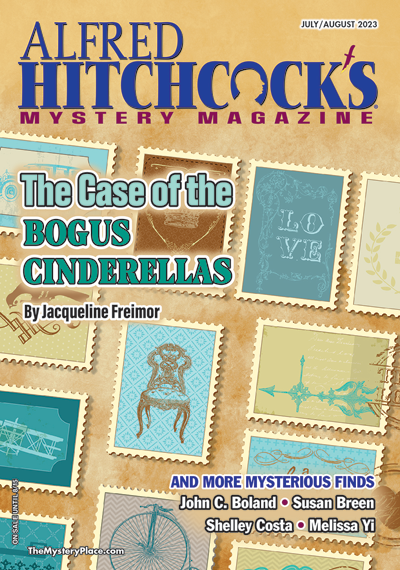"Concrete Dog," by Stephen Ross, in Alfred Hitchcock's Mystery Magazine, July/August 2023.
This is the third appearance in my column by Stephen Ross, my fellow SleuthSayer.
It is 1940 in New Zealand (Ross's home turf.)
Frank has enlisted in the army and is about to go off to the war. But the day before he sails he is considering something really dangerous: doing a favor for his crooked brother.
Brother offers him fifty pounds to steal concrete dog from a rich man's house. Brother has health problems and can't possibly lift the beast, hence the request/offer. Why is the stone pooch worth that kind of money? Well, brother offers an explanation which doesn't hold a lot of water. Of course, there is more going on...
But Frank and his wife really need the money.
Things go in a surprising and satisfactory direction.





